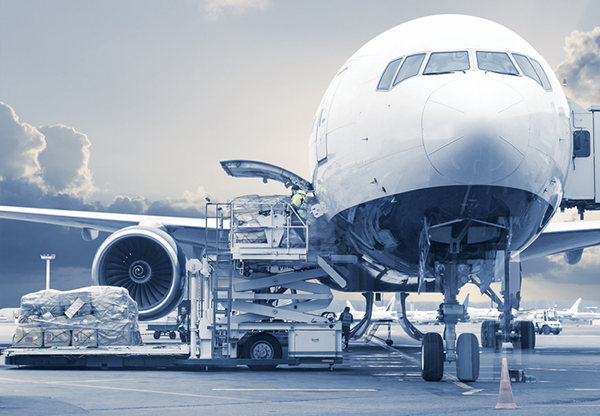FedEx union pilots sign off on terms of tentative labor agreement

Forward progress remains intact in labor negotiations between Memphis-based global freight transportation services provider FedEx and pilots at the company’s FedEx Express subsidiary represented by the Air Line Pilots Association (ALPA), following a tentative agreement reached between the parties late last month.
FedEx pilots for the company’s FedEx Express subsidiary represented by the Air Line Pilots Association (ALPA) said yesterday they voted to approve the contract, with a membership ratification ballot scheduled for July 5, which will close on July 24.
When the tentative agreement was announced on May 30, contract details were not disclosed. But terms were made public by ALPA yesterday, including:
- a 30% pay increase;
- a 30% increase to the pilots’ legacy pension; and
- a fully-developed and company-funded Market Cash Balance pension to provide a durable replacement for their legacy pension
- ALPA officials said that this is the largest investment in a pilot contract, to date, on a per-capita basis and also substantially raises the bar on pilot retirement.
“After careful consideration and thorough debate, our union leaders recognized the value this agreement will bring to our pilots and their families,” said Capt. Chris Norman, Chair of the FedEx Master Council, the governing body of the FedEx unit of ALPA. “Now, we shift our focus to ensuring our pilots have the time and resources needed to make an informed decision. We took a membership-driven approach to these negotiations, with polling and direct feedback throughout the process. We negotiated an industry-leading contract and achieved improvements contract-wide. We look forward to presenting the agreement to our pilots for consideration. The improvements to our retirement stand out. Not only did we accomplish major improvements to the existing pension benefit—improvements that we sought and management bitterly resisted in past negotiations—but we also crafted a new pension plan that sheds the negative funding aspects of our current plan. The new plan is completely sustainable and ensures that the costs of the plan charged to the company match the value that goes to the pilots. It’s a tremendous accomplishment.”
FedEx officials did not reply to LM for a comment at press time. But on May 30 the company said in a statement that: “We are pleased to have reached a tentative agreement with our pilots as we continue delivering outstanding service to our customers around the world.”
As previously reported by LM, ALPA officials said that ALPA and FedEx management had been in mediation with the National Mediation Board going back to November 2022 (the contract became amendable in November 2021), with negotiations for a new deal having begun in May 2021. And they added that the FedEx pilots are currently working under contractual provisions and benefits that were negotiated in 2015.
On May 17, FedEx pilots, represented by ALPA, voted to authorize a strike, if needed, in order to come to terms on a new contract.
At the time Norman explained that FedEx needs to deliver a new contract that reflects the value the ALPA pilots bring to FedEx as highly skilled professionals delivering FedEx’s “Purple Promise” on a daily basis.
In a collective bargaining update issued by FedEx on the same day, the company said that FedEx remains focused on providing world class service to its customers, adding that while strike authorization votes are a common tactic for labor organizations during Railway Labor Act negotiations, strikes are only possible with the express permission of the National Mediation Board.
“They can only occur after the parties have passed through multiple legally mandated steps, and only when other safeguards, such as Presidential or Congressional intervention, do not occur,” it said. “ALPA’s [May 17 strike authorization] announcement is consistent with the recently announced authorization votes from other represented carriers who continue to bargain without any interruption to their operations. FedEx is focused on reaching a comprehensive agreement and remains committed to bargaining in good faith with our pilots to achieve an agreement that is fair to them, our other team members, and all other FedEx stakeholders. The results of ALPA’s strike authorization has no impact on our service as we continue delivering for our customers around the world.”
Jerry Hempstead, president of Orlando-based Hempstead Consulting, said that as many airlines have renegotiated their pilots’ contracts of late, other pilots always want what the other ones are getting and more.
“Pilots as a group are the highest paid employees on the planet and therefore puts stress on the P&L when they demand and get more concessions on work rules and compensation,” he told LM. “The pilots also see the FedEx stock is up over $100 a share in the last year and they want to enjoy some of that, so it’s hard for management to plead poverty.”
Josh Taylor, Senior Director of Professional Services, for San Diego-based Shipware, an audit and parcel consulting services company, told LM that in looking at the FedEx pilots situation, the main risk posed to FedEx by the potential for a pilots’ strike hasn’t been the threat of the pilots walking out, but the dissatisfaction of the pilots and the uncertainty it could have created with investors.
In comparing the FedEx labor situation to the one between FedEx rival UPS and the Teamsters Union, he explained that labor laws for airlines are very different from those that govern UPS drivers, making it harder for pilots to strike and relatively easy for the federal government to step in and force pilots back to work.
What’s more, Taylor observed that without minimizing the individual concerns of FedEx flyers and their families, perhaps the largest risk to FedEx was investor confidence.
“Pilots are highly trained, expensive, and difficult to replace,” he said. “This isn’t a position FedEx can fill by pulling a top performer off the unload wall and giving them on-the-job training. Savvy investors know that while the need for pilots is widely projected to increase in the coming years, the ability to fill those jobs is expected to decrease. In February this year, AP News cited an estimate from consulting firm Oliver Wyman that ‘despite efforts to close the gap, airlines in North America will face a shortage of nearly 30,000 pilots by 2032.’”
In a tight labor market, unhappy pilots will find it increasingly easy to leave any company they believe is undervaluing them. FedEx Express cannot afford these personnel losses, and investors know it. Without knowing the intimate details of what took them so long, it’s good news for everyone that FedEx appears to have finally agreed to terms its pilots are likely to accept.”

Article Topics
FedEx News & Resources
Parcel experts examine the UPS-United States Postal Service air cargo relationship amid parcel landscape UPS is set to take over USPS air cargo contract from FedEx Will recent talks between FedEx and Amazon lead to a reunion? New FedEx offering focuses on closing the gap between digital and physical for merchants Next steps in FedEx-USPS business relationship are uncertain with contract set to expire at end of September FedEx fiscal second quarter revenue is down annually Major parcel carriers turn in strong Cyber Week on-time performance levels, reports ShipMatrix More FedExLatest in Logistics
Key benefits of being an Amazon Business customer with Business Prime USPS cites continued progress in fiscal second quarter earnings despite recording another net loss U.S. rail carload and intermodal volumes are mixed, for week ending May 4, reports AAR New Ryder analysis takes a close look at obstacles in converting to electric vehicles Norfolk Southern shareholders sign off on 10 board of directors nominees Between a Rock and a Hard Place Inflation and economic worries are among top supply chain concerns for SMBs More LogisticsAbout the Author
Subscribe to Logistics Management Magazine

Find out what the world's most innovative companies are doing to improve productivity in their plants and distribution centers.
Start your FREE subscription today.
May 2024 Logistics Management

Latest Resources














